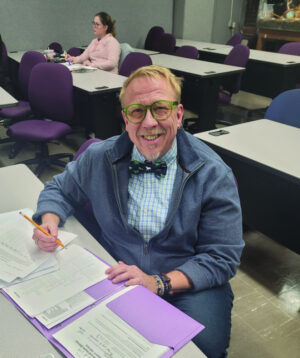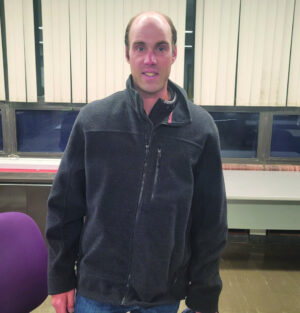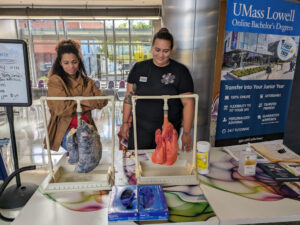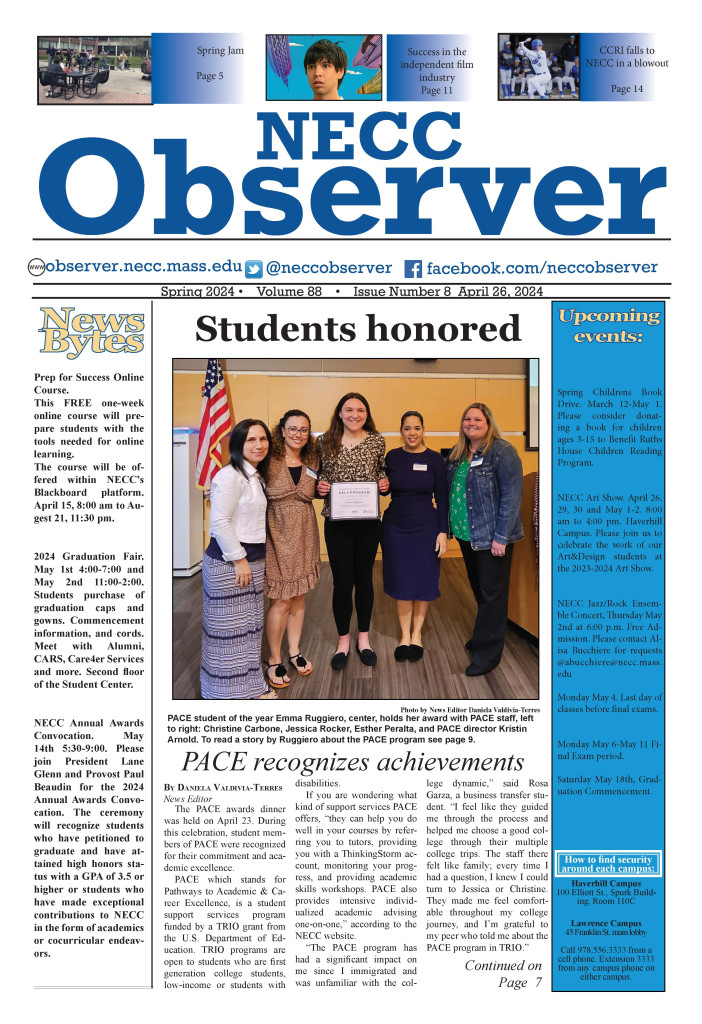As the academic year reaches its end, college students across campus find themselves grappling with the stress and challenges that come hand in hand with the end of the semester. Balancing academic responsibilities, work commitments, and personal life can be a difficult task. However, amidst the stress, students here at Northern Essex like Maya Rivera, Esnerfree Garcia, and Genaily Sanchez are finding great ways to cope and persevere.
Maya Rivera, a 25-year-old American Sign Language/Deaf Studies major, offers a glimpse into the demanding life of a full-time daycare worker and part-time student. Rivera, who attends in-person classes once a week, highlights the delicate balance she maintains between work and academics. “Working full time at a daycare and attending classes has its challenges,” she says. “Luckily though, my boss works around my schedule. Even so, with work, I don’t have much time to study and get all my other chores and responsibilities done. The end of the semester for me is both extra stressful and relieving because I know it’s almost over and I did my best.”
Esnerfree Garcia, 23-year-old Liberal Arts major, finds solace in a different approach to managing end-of-semester stress. “I cope with the stress of the end of the semester by putting on headphones and listening to music,” Garcia says. “This helps me de-stress and focus on whatever assignment I’m doing or whatever I’m studying.” Many students can relate to the therapeutic power of music, and Garcia’s simple yet effective coping mechanism highlights the diverse ways individuals navigate the pressures of finals season.
Genaily Sanchez, a 22-year-old Psychology major, takes a proactive approach to stress management. Contrary to the stereotype of stress leading to a sedentary lifestyle, Sanchez emphasizes the importance of physical activity during challenging times. “I actually exercise more when I’m stressed. When I exercise, I feel more energized to study and feel more prepared for my final exams. I think I actually do better on them too when I exercise and hydrate beforehand,” she says. Sanchez’s commitment to maintaining a healthy lifestyle not only contributes to her physical well-being but also positively impacts her academic performance.
As students like Rivera, Garcia, and Sanchez navigate the pressures of the final weeks, their stories serve as a reminder that each individual copes with stress in their own way. The diverse range of strategies, from finding balance in a hectic schedule to immersing oneself in music or prioritizing physical activity, underscores the resilience and creativity of the student community here at NECC. As the end of the semester approaches, these personal anecdotes offer insight into the various paths students take to emerge triumphantly from the challenges of academia.




